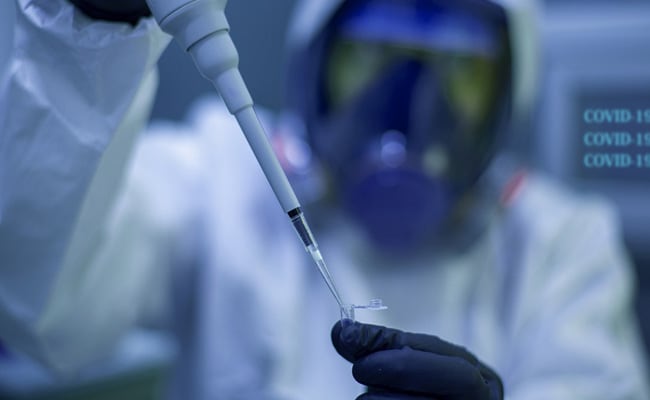
Vast majority of UK have received either the Pfizer or the AstraZeneca vaccine shot. (File)
London:
The first study to directly compare immune reactions between Pfizer’s and AstraZeneca’s COVID-19 vaccines found strong and broadly similar antibody responses in over 80-year-olds after a first dose of either shot, scientists said on Wednesday.
The UK study also found that a critical component of the immune system known as T cells showed a more enhanced response in those who got the AstraZeneca/Oxford University vaccine than in those who got the Pfizer/BioNTech one.
The scientists behind the study, which analysed blood samples from 165 people in Britain aged between 80 and 99 who had been given a first COVID-19 vaccine dose, said that finding merited further investigation.
While antibodies can block the coronavirus’ ability to enter human cells, T cells can act as broader protection by attacking and killing any cells that have been infected with the virus.
“These vaccines are both equivalent and effective at inducing antibody responses in the great majority of people (in this study), even after one dose,” said Paul Moss, a professor of haematology at Britain’s Birmingham University who co-led the research.
“Both vaccines are good,” he told a briefing on the findings.
The study was published online as a preprint before being peer reviewed. It found that key antibodies were present and at similar levels in 93% of the 76 study participants who got the Pfizer single COVID-19 vaccine dose, and 87% of the 89 participants who got the AstraZeneca shot.
Helen Parry, clinical lecturer at Birmingham University who co-led the study, said the tests also showed that a larger proportion of those who got the AstraZeneca vaccine had a detectable T cell response.
That finding adds to other emerging evidence from COVID-19 studies suggesting that antibodies – which stop the coronavirus from being able to attach to human cells – may not be the only important element of immunity, and that T-cells may also have an important protective role.
“We now need to carry out further research to understand what this difference in T cell responses means,” said Parry.
Around half of the UK population have had at least one dose of a COVID-19 vaccine, one of the highest rates of inoculation in the world. The vast majority have received either the Pfizer or the AstraZeneca shot.
(Except for the headline, this story has not been edited by NDTV staff and is published from a syndicated feed.)
Source link